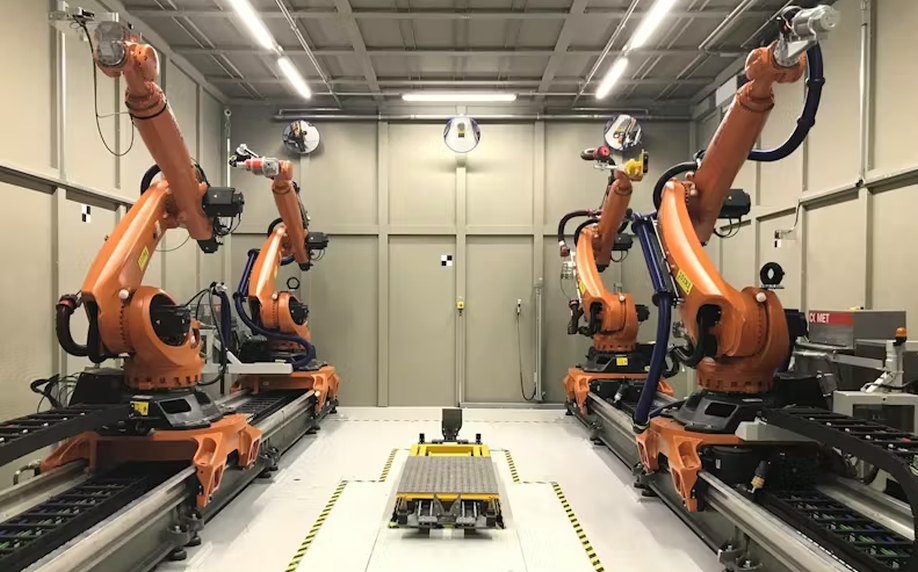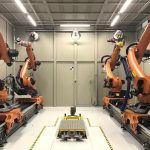Realtime Robotics raises $9.5M in additional funding for its collision-free autonomous motion planning for industrial robots

While the spotlight remains on generative AI, the funding landscape for automation and robotics startups is also thriving. Investors continue to pour billions into the space as companies like BMW leverage solutions from some of these startups to enhance speed and efficiency through cutting-edge robotic and control software solutions.
One of the big players in this field is Real Robotics, a provider of robot motion planning and control software that helps companies to improve the speed and efficiency of industrial robot programming, deployment, and control.
The startup has developed an innovative technology called RapidPlan, which brings significant benefits to the field of robotic automation. By leveraging RapidPlan, manufacturers and logistics companies can reduce their annual costs associated with robotic automation by a staggering two-thirds.
Additionally, this technology streamlines the robot programming process, making it up to five times faster than traditional methods. A notable advantage of RapidPlan is its ability to eliminate robot collisions and minimize the need for manual, time-consuming adjustments. As a result, companies can enhance the efficiency and effectiveness of their automation operations by incorporating more robots while significantly reducing the time required for setup and management.
To further meet the increasing demand for its technology, Realtime Robotics announced today it has raised $9.5 million in additional from investors, bringing the company’s total funding to date to $54 million.
Realtime Robotics was co-founded in 2016 by Brown University robotics professor George Konidaris and works with a variety of companies, such as BMW, Schaeffler, Kawasaki, Siemens, and Mitsubishi. Toyota’s venture arm is an investor.
“Manufacturers need to accelerate their adoption of robotics – and quickly realize a return on that investment – in order to improve their ability to adapt and compete in today’s industry,” said Peter Howard, CEO of Realtime Robotics. “RapidPlan perfectly complements these efforts, enabling the programming, deployment, and robot control to be optimized. Our intelligent tools dramatically reduce complexity and the potential for human error, both of which can rapidly increase the cost of deploying and operating industrial robots. We’re thrilled to apply this funding to our scaling and development efforts as we grow to meet the increased market demand.”
In order to secure a larger portion of the market, manufacturers are placing renewed emphasis on optimization, flexibility, retooling, and integrating processes from simulation to production. Recent research conducted by McKinsey & Company reveals that software innovation has the potential to generate an additional $1.5 trillion in revenue for the automotive industry by 2030. Nevertheless, achieving these transformative goals requires a highly skilled workforce. Since programming and integration costs can make up a significant 50-70% of the expenses associated with a robot application, innovative approaches to automation and robotics are necessary to truly make a positive impact on the company’s financial performance.
“There is currently a perfect storm of economic and employment pressures within the manufacturing space. This is driving an industry-wide need to embrace new technologies and approaches to longstanding problems, to become more efficient and improve cost structures, while still delivering the products that consumers demand,” said Damian S. Kang, Executive Director & Team Lead, Global Equity Team, at Shinhan GIB. “Realtime’s technology is a perfect fit, allowing organizations to digitally plan robot usage while making the programming process faster and less complex.”
“It takes years of deep engagement with a real industrial manufacturer to understand all their requirements and build against them,” added George Konidaris, co-founder and CTO of Realtime Robotics. “That very long tail of highly-specific, detail-oriented requirements is the thing that actually makes robotics products both hard and valuable, and is what most robotics startups just miss, either because they’re not familiar with real applications or because they are trying to build something very general first. We’re far along that journey and are seeing our sustained efforts result in customer success. It’s an exciting time.”

